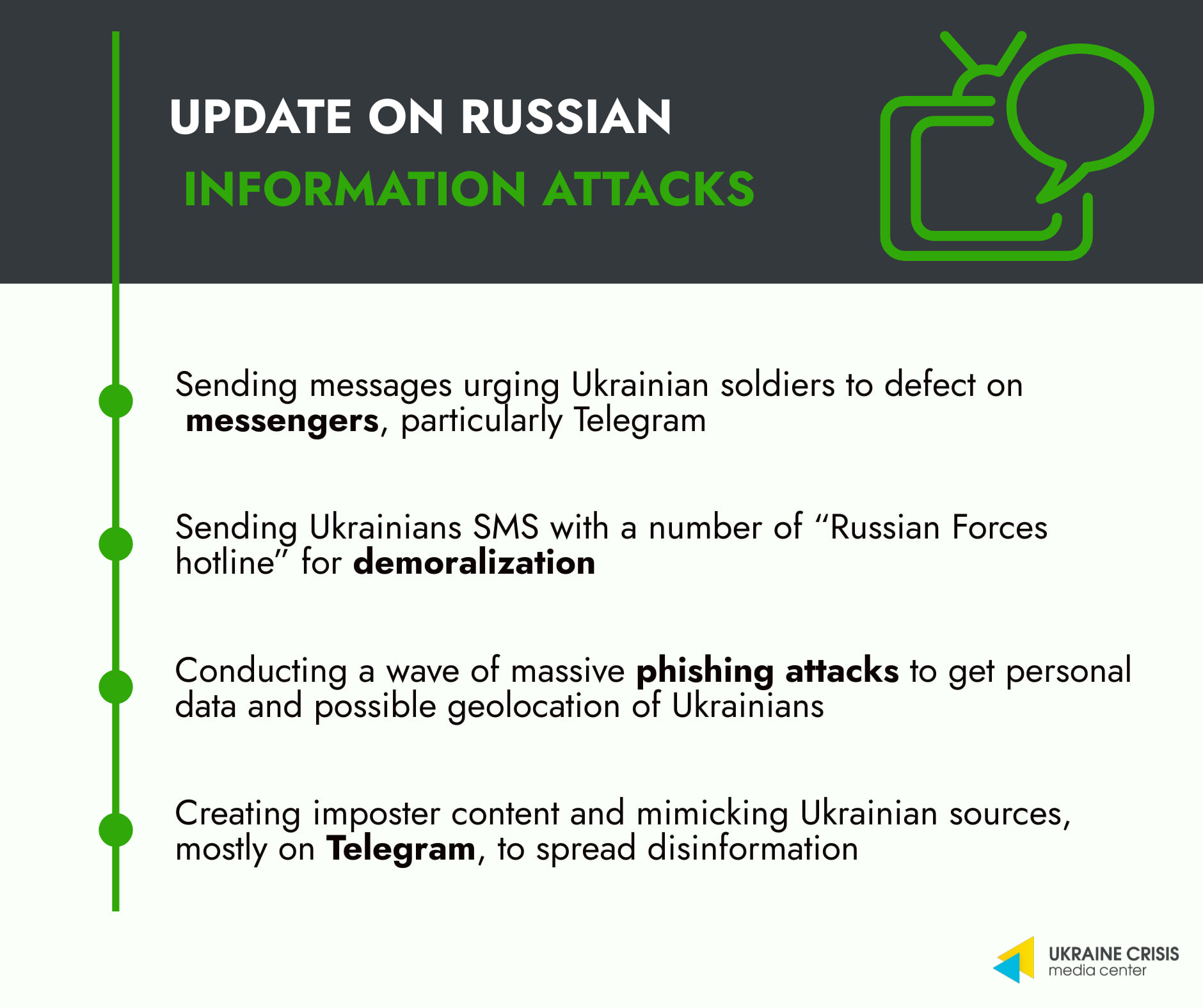
Similar to 2014, Russia tries to intimidate Ukrainian soldiers and urge them to defect.
Messages are sent en masse in Telegram, citing Putin and his appeal to Ukrainian soldiers to “end useless resistance” so that they can “return to their families with no obstacles”.
The Armed Forces of Ukraine stay strongly motivated to protect their land against the invasion and have support from civilian population. All the messages about “massive defections” are spread by Russian and pro-Russian sources. Ukraine does not and will not trust Putin – #UkraineWillResist
Additionally, Ukrainians started receiving SMS with a number of “Russian Forces hotline” to demoralize population.
Moreover, on February 25th a massive wave of phishing attacks was spotted in order to gain access to the personal data of Ukrainians via attachments with malware. During military action it can pose additional danger to life and health due to possibility of accessing one’s geolocation.
Fake profiles are created on Facebook and, particularly, Telegram, mimicking in name and design popular Ukrainian sources reporting on the military developments. They are aimed at building up audience and spread disinformation.

